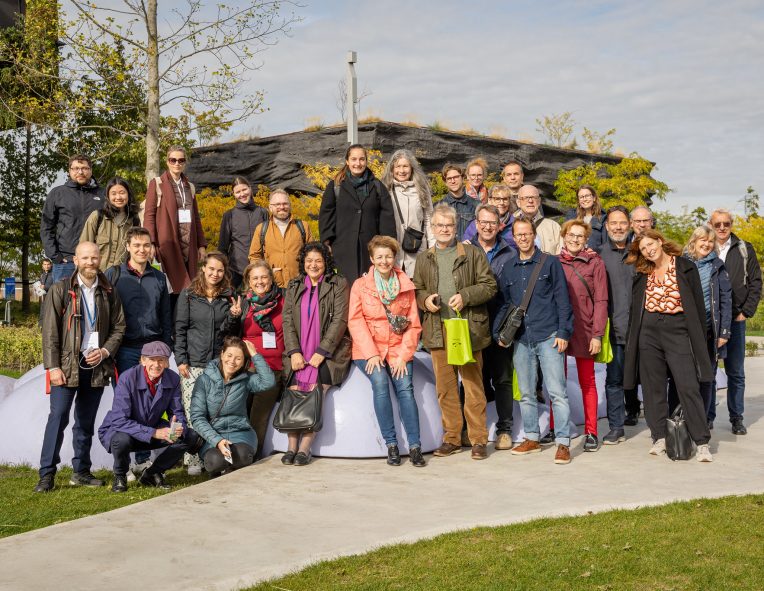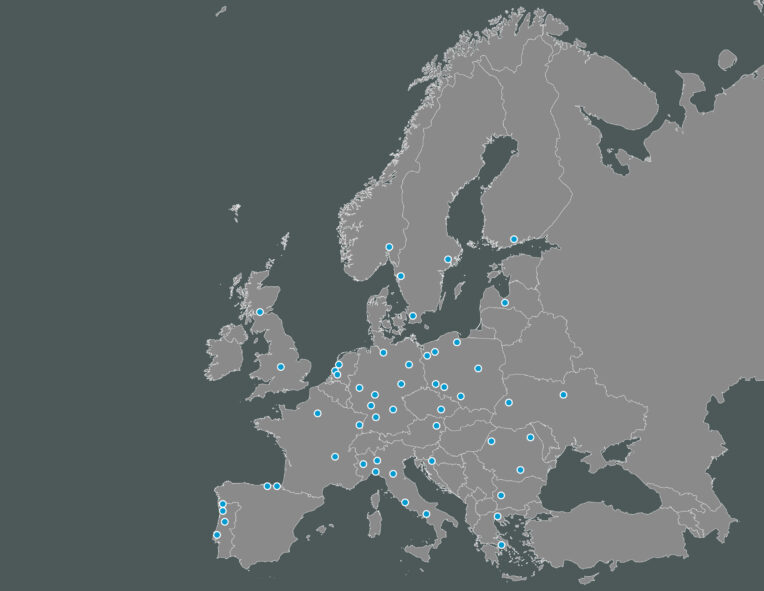SAH Meeting #1: Kick-off event
13:30-14:30 CET, Online
METREX members and their national partners representing 17 different members’ institutions from 13 different countries across Europe have gathered for this first meeting of the SAH Expert Group on January 18.
What brought the group together is a common interest in exploring housing solutions that can help METREX members to tackle the housing and affordability crisis from a metropolitan perspective. This is a very unusual point of view when housing usually remains a municipal competence. On the contrary, recent research studies and pilot cases are demonstrating the relevance in addressing the topic at the metropolitan scale.
The goal of the group is to maximize the internal capacity of METREX (in terms of experiences and expertise that can be shared), yet link it to external existing initiatives (reach out to EU programs or funding opportunities and other specialized organizations such as Housing Europe), but also to non-governmental actors and private actors including academics, think-thanks, developers and financial institutions.
Through a new multi-sectoral approach we would like to target the regional affordability, therefore the regional and metropolitan level will be the focus of this knowledge exchange learning process.
Reasons for metropolitan regions in being more involved in the housing matters
Regions are better placed at understanding intermunicipal collaboration having a comprehensive view on what is going on in the wider area, who are the various players / stakeholders and what are the land opportunities. They are also able to overcome intermunicipal cooperation challenges to achieve national level housing policy targets(provisions, regulations, development lands). A metropolitan approach enables the focus on housing provision and affordability together with aspects concerning land use and strategic planning, climate adaptation and mitigation, transport and mobility and regional economic and productivity aspects.
All around Europe there is a growing concern about national governments massively reducing housing funds and social benefits in a context where living conditions and costs in urban areas are skyrocketing. It was highlighted for example that the Finnish Government is going to introduce big changes in the national policies imposing a reduction to the housing allowance, social security system, and the national Housing Fund among others. Since housing is becoming more expensive in the larger urban centres, especially in the core cities of the Helsinki Metropolitan Area, this reform will have negative consequences, especially when combined with cuts in other social benefits and the rising costs of housing and living expenses. These changes need to be monitored, evaluated and addressed at the city-regional scale. There is currently a city-regional Plan that includes housing targets and policies, but it will be difficult to make it operational without the contribution of the National Funds.
Suffocated by a terrible housing crisis, French partners call for innovative solutions, sharing experiences…. and new ideas!
There is a common interest on focusing the efforts on the analysis of the property markets, prices and housing and housing needs for a better understanding on the present dynamics.
In Norway, Oslo has a regional plan for land use and transport with certain expectations on where and how municipalities should build housing. Notwithstanding, turns out that the plan has some weaknesses in terms of social sustainability, and this is something they would like to address in a potential revision of the plan.
How are we going to collaborate?
‘Get inspired’ activities: involving a presentation from an expert that connects practice with cutting edge research. When available, they will include a relevant publication or other reading materials. Get inspire activities will be recorded and shared with members to increase dissemination.
‘Get into the debate’ activities: involving round table discussions with stakeholders from other sectors to increase multidimensionality of conversations and a more holistic view when analysing ideas/unintended consequences.
‘Get walking’ activities: involve site visits to selected schemes that offer practical lessons and how to adapt and transfer them to other regions.
Is there a framework to guide activities?
The proposed work for this year will be framed around the ‘Structure and Agency Model of Real Estate Development’.
This is an analytical tool that will help you understand why and how development happens and understand the blockages and how to overcome them by focusing on real-life examples in the social housing sector.
This will be an applied training activity where participants will learn by analysing projects and you are welcome to bring an example from your region. The fifth edition of the Social Housing Festival in Ireland 2025 (https://www.socialhousingfestival.eu/) will be an opportunity for the group to report progress and results of the analytical approach.
Want to be part of this new METREX Program?
Find out more about the Sustainable and Affordable Housing Expert Group
Members interested in joining the new Sustainable and Affordable Housing (SAH) Expert Group are invited to contact Viviana Rubbo for more information.
Photo by ThePowerCouple on Unsplash



